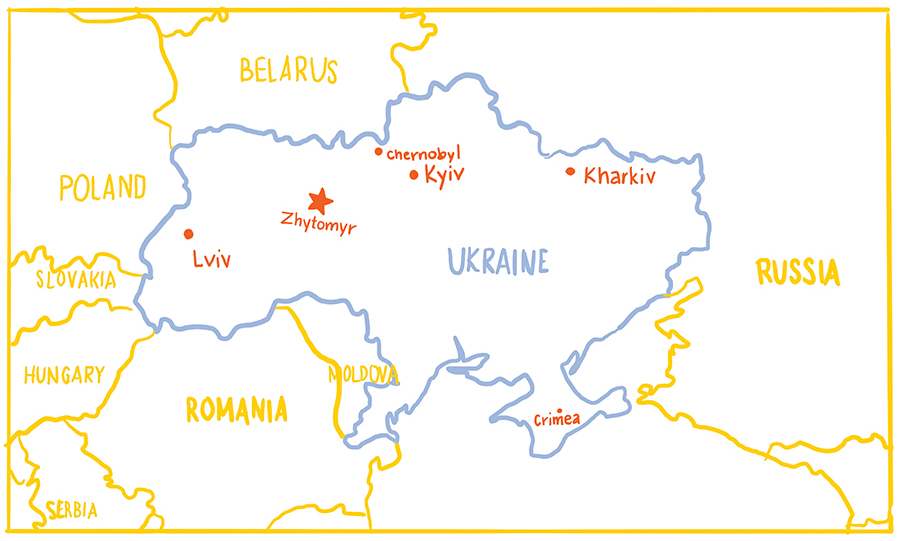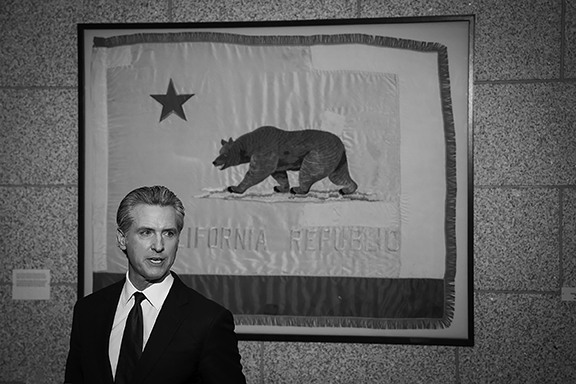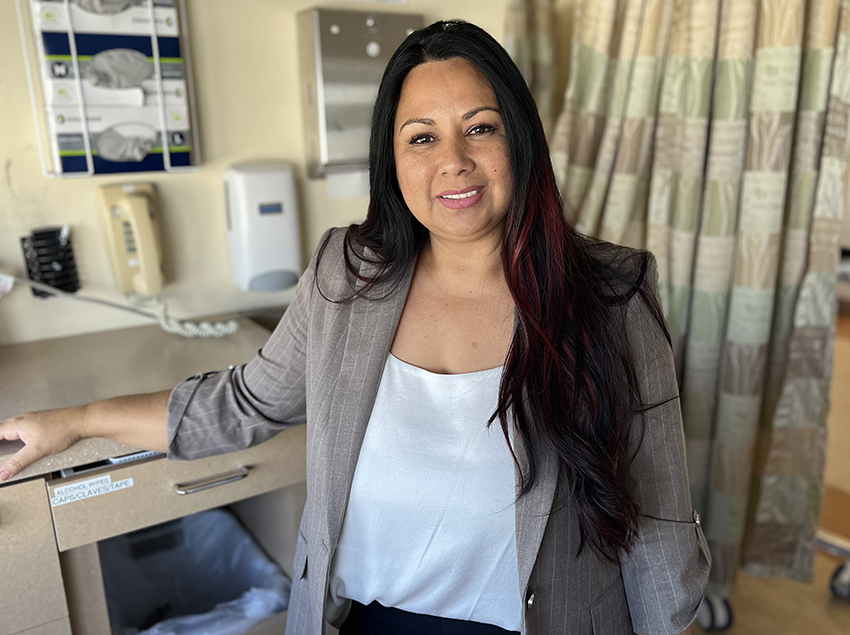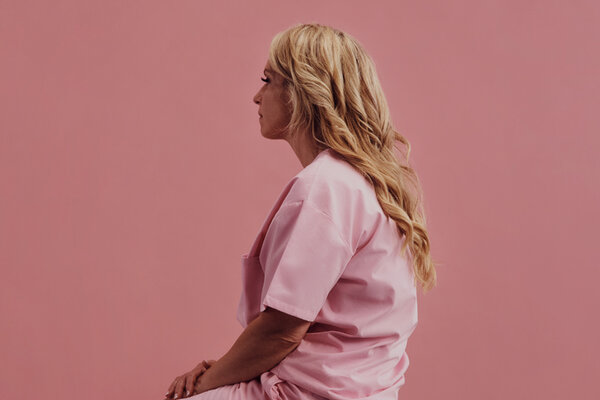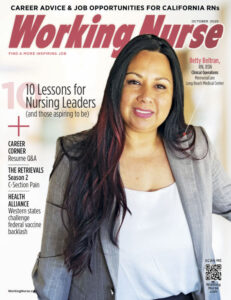Feature
The Zhytomyr Hospital Challenge
A hospital in Ukraine is in crisis. Thank you for supporting a good cause.
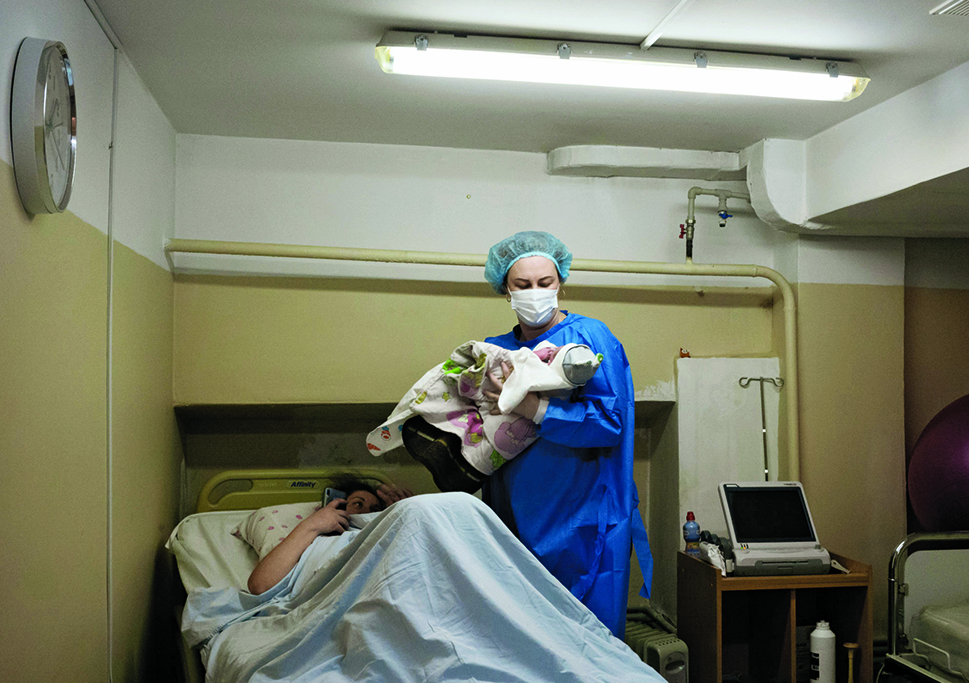
LAST FALL, I met Olena Svetlov, RN, DNP, CNS, a Ukrainian-born nurse I connected with on LinkedIn, at a Ukrainian restaurant in Playa del Rey. I intended to interview her for a profile in Working Nurse. But by the time the check came, a different — and much more imperative — initiative had emerged.
PART I: THE NURSE
Cold War Relics
Olena was born in Zhytomyr, Ukraine, a city of about 250,000, situated an hour’s drive west of Kyiv. She immigrated to Southern California 21 years ago, and now lives in Calabasas with her husband, three kids, and many pets, and works as a clinical nurse specialist at a renowned hospital in Los Angeles.
[Zhytomyr is pronounced “Ji-tow-meer.”]
While sharing a plate of varenyky — dumplings stuffed with cherries and cottage cheese — she told me about the hospital in her hometown where she volunteered before the pandemic.
“You can’t believe it,” she said. “They are still using computers from the ‘80s, running MS-DOS.”
Spooning a dollop of sour cream onto a dumpling, she continued, “Their blood pressure cuffs are Soviet-issue from the Cold War era. They were probably defective to begin with. Can you imagine that 60 years later, they’re still using them?”
Olena’s Story
Olena arrived in Los Angeles in 2003 as a refugee, fleeing from the post-Soviet Ukrainian secret police. Recently graduated from university with a degree in English language and literature, she had been working as a translator in Kyiv when she inadvertently translated a passage that embarrassed a top government official. Scapegoated, she was forced to quickly leave the country.
Finding work in the U.S. was frustrating, but she ultimately discovered nursing by way of a volunteer internship program at UCLA Medical Center. There, a tender moment she witnessed between a nurse and a patient with Parkinson’s inspired her to become a nurse.
Olena enrolled in an accelerated BSN program, followed by an MSN with a dual-track CNS and adult gerontology nurse practitioner degree. She added a DNP to her academic accomplishments in 2022. Throughout her career, she has worked in many roles at prominent Southern California hospitals.
“You sure have a lot of degrees,” I said.
“I’m making up for all the people in my family who were not able to get an education,” she replied.
“Are your parents still in Zhytomyr?” I asked.
“No,” she said, “that generation all died early.” She pauses. “They were exposed to Chernobyl.”
Stop the Bleed
In 2015, Olena and her family took a trip back to Zhytomyr. She stopped by the hospital, where she volunteered to host educational seminars for nurses and doctors. While there, she observed the sorry state of the hospital’s outdated medical equipment and the shortages of basic supplies we take for granted at American hospitals.
The following year, Olena returned to volunteer at Zhytomyr Hospital for a month, bearing a gift. With the permission of the American hospital where she worked, she gathered an assortment of medical supplies that would otherwise have been discarded, including intubation trays; chest clamps; and “stop -the-bleed” kits, complete with tourniquets, medicated gauze, and scissors.
The staff at Zhytomyr Hospital were grateful for the supplies. However, one nurse questioned the need for the stop-the-bleed kits.
“What are those for?” she asked. “It’s not like we’re at war.”
PART II: THE HOSPITAL
Under Attack
On February 24, 2022, Russia launched a full-scale invasion of Ukraine. Russian tanks and artillery came within striking distance of Zhytomyr.
During wartime, hospitals are supposed to be sacrosanct. The Geneva Convention decrees that attacking hospitals, ambulances, and medical personnel is a war crime. Despite that international law, Russia has repeatedly and deliberately targeted hospitals throughout Ukraine.
Zhytomyr Hospital has been shelled so fiercely that patients have had to evacuate to the basement, which serves as a makeshift bomb shelter. In addition to the psychological terror of bombing or shelling, these attacks force the staff to treat patients amidst wreckage, fires, and damaged equipment. Over 100 of the hospital’s windows have been shattered.
Feb. 24, 2024 marked the war’s two-year anniversary. It’s been an exhausting, terrifying time for the staff at Zhytomyr Hospital, but they still show up every day to care for their patients.
How We Can Help
Zhytomyr Hospital was not well-resourced when Olena last visited in January 2020. For example, instead of processing blood samples with an automated hematology analyzer, samples were (and still are) reviewed individually by a lab nurse using a microscope!
Then came the twin tsunamis of the COVID-19 pandemic and the war. Now, the hospital is under extreme stress and urgently needs supplies and medical equipment.
As Olena and I talked, a thunderbolt struck: What if our Working Nurse community were to “adopt” Zhytomyr Hospital? What if we bought them the equipment they so desperately need? Our help could be a game-changer. And so, the idea for The Zhytomyr Hospital Challenge came into being.
PART III: THE CHALLENGE
What They Need
We reached out to the hospital staff at Zhytomyr Hospital to share our idea. They were overjoyed and humbled that our community of kindhearted nurses and other friends would want to help them in this way.
Then, Olena and I interviewed members of the medical team over Viber, a videoconferencing platform popular in Ukraine, to discuss what new medical equipment would be most beneficial.
(EDITOR’S NOTE: Because the hospital has repeatedly been a target of Russian attacks, the staff have asked us not to share their full names, and a few prefer that we not to print their photos, for their protection.)
Vitaly
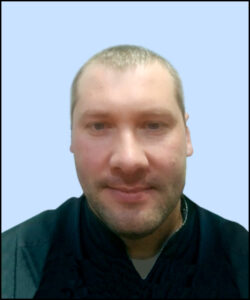 Vitaly is a surgeon and Zhytomyr Hospital’s general manager, and has been our primary contact throughout this project. He was trained as a general surgeon, but since the start of the war, he’s had to master treatment of battlefield injuries, including amputations. He is now specializing in endoscopy — he says there are many doctors who know how to perform surgery, but he’s the only one who can do endoscopy.
Vitaly is a surgeon and Zhytomyr Hospital’s general manager, and has been our primary contact throughout this project. He was trained as a general surgeon, but since the start of the war, he’s had to master treatment of battlefield injuries, including amputations. He is now specializing in endoscopy — he says there are many doctors who know how to perform surgery, but he’s the only one who can do endoscopy.
Vitaly needs modern endoscopy equipment.
Andryi
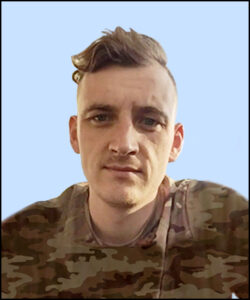 Andryi is a surgical/trauma nurse. A veteran who joined the Ukrainian army when Russian troops invaded Crimea in 2014, he enrolled in nursing school after a land mine severely wounded his legs. When the war started in February 2022, his wife and children moved to Poland for a year while he stayed behind to treat patients at Zhytomyr Hospital. He turns to woodworking as a way to decompress from the near-constant stress.
Andryi is a surgical/trauma nurse. A veteran who joined the Ukrainian army when Russian troops invaded Crimea in 2014, he enrolled in nursing school after a land mine severely wounded his legs. When the war started in February 2022, his wife and children moved to Poland for a year while he stayed behind to treat patients at Zhytomyr Hospital. He turns to woodworking as a way to decompress from the near-constant stress.
Andryi needs glucometers and blood pressure cuffs.
Inessa
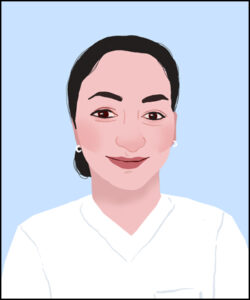 Inessa and her husband are both in the military, she as an M.D. and he on active duty in the infantry. They have a 7-year-old daughter, and Inessa says the war “has stolen her childhood.” As one of the leading clinicians at Zhytomyr Hospital, Inessa’s workday often ends the following morning because she cannot leave until she sees all the patients. She is also responsible for treating the “sickest of the sick” throughout the entire region.
Inessa and her husband are both in the military, she as an M.D. and he on active duty in the infantry. They have a 7-year-old daughter, and Inessa says the war “has stolen her childhood.” As one of the leading clinicians at Zhytomyr Hospital, Inessa’s workday often ends the following morning because she cannot leave until she sees all the patients. She is also responsible for treating the “sickest of the sick” throughout the entire region.
Inessa needs a treadmill, CT, MRI, and angiogram equipment.
Bogdan
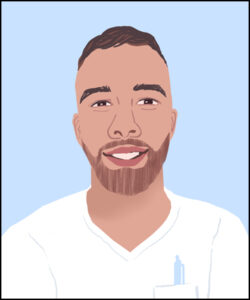 Bogdan is a general practice M.D. His dream is to build a cardiology center at Zhytomyr Hospital for patients who are currently required to travel to Kyiv or Lviv for treatment of heart problems — a difficult journey in wartime. He is currently the interim head of the Zhytomyr Hospital emergency department, often working 24-hour shifts. He says that since he is not married, the long, strenuous hours don’t bother him.
Bogdan is a general practice M.D. His dream is to build a cardiology center at Zhytomyr Hospital for patients who are currently required to travel to Kyiv or Lviv for treatment of heart problems — a difficult journey in wartime. He is currently the interim head of the Zhytomyr Hospital emergency department, often working 24-hour shifts. He says that since he is not married, the long, strenuous hours don’t bother him.
Bogdan needs cardiology equipment.
Alina
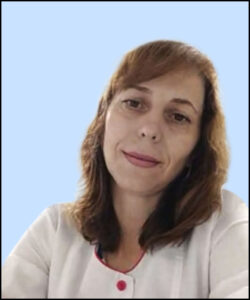 Alina is a lab nurse. Lacking automated hematology equipment, she does blood analysis manually with a microscope. This slow process, along with the increased patient load, makes it impossible to process samples in an accurate and timely way. On the day the war started, Alina, like most everyone else, did not believe it was happening until the local school was bombed. Her husband has taken over managing the household so she can be at work long days. She dreams of going on vacation “somewhere nice and beautiful.”
Alina is a lab nurse. Lacking automated hematology equipment, she does blood analysis manually with a microscope. This slow process, along with the increased patient load, makes it impossible to process samples in an accurate and timely way. On the day the war started, Alina, like most everyone else, did not believe it was happening until the local school was bombed. Her husband has taken over managing the household so she can be at work long days. She dreams of going on vacation “somewhere nice and beautiful.”
Alina needs a hematology analyzer.
Bagheera
 Last year, a gravely injured young man whose university dormitory had been bombed was brought to the Zhytomyr Hospital emergency department, accompanied by his cat. Sadly, the young man did not survive his wounds, but the hospital staff adopted the cat and named him Bagheera, after the panther from The Jungle Book who is Mowgli’s friend and protector.
Last year, a gravely injured young man whose university dormitory had been bombed was brought to the Zhytomyr Hospital emergency department, accompanied by his cat. Sadly, the young man did not survive his wounds, but the hospital staff adopted the cat and named him Bagheera, after the panther from The Jungle Book who is Mowgli’s friend and protector.
Raising Money
Next, we set up a fundraising campaign. Collecting money for charity in California is highly regulated (as it should be). Our attorney suggested our best option was to find a fiscal sponsor. Research led us to IFERS, the Los Angeles-based Institute for Education, Research and Scholarship.
IFERS sponsorship means that donations to our campaign are tax deductible. Contributions go directly into an account managed by IFERS. Working Nurse does not hold or disburse donation funds.
Our goal is to raise $30,000 to buy urgently needed medical equipment for Zhytomyr Hospital. We are now collecting donations through this website until May 21, 2024.
If you are in a position to so, please donate! Every dollar helps — since we’ll be buying the equipment in Ukraine, the exchange rate is highly favorable, and your U.S. dollars will go far.
Delivering Hope
Another challenge was figuring out how to make sure the funds get to where they’re needed. Ukraine is still struggling to banish the corruption of the post-Soviet era, and in a nation at war, money and resources could be misappropriated.
Olena and I finally concluded that we should travel to Zhytomyr ourselves to purchase equipment directly from Ukrainian suppliers, and personally oversee its delivery and installation.
In June, we plan to make the trip to Ukraine to complete this initiative. A feature story in the September issue of Working Nurse will recap the trip and its outcome.
The donor wall of our website has a space for comments, which we’ll compile to present to our friends at Zhytomyr Hospital when we deliver the equipment, as a message of hope from our Working Nurse community.
To view more photos, please see the cover story on page 14 of the Flip Mag.
CATHERINE RHODES is the editor & publisher of Working Nurse magazine. A special thanks to Holly Strother and Amy Semmel for donating their time and expertise to this project.
In this Article: Ukraine, Zhytomyr Hospital Challenge


